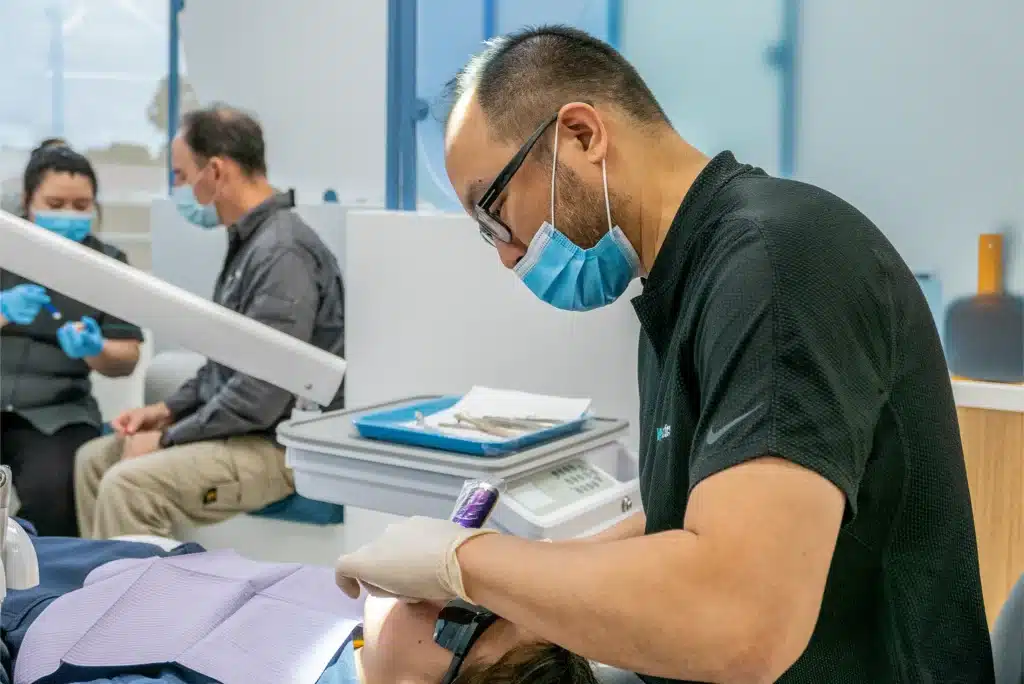We are having a short break over Christmas. Please click here for any orthodontic emergencies.
We are having a short break over Christmas. Please click here for any orthodontic emergencies.

Wisdom tooth removal is a common dental procedure for people in their late teens or early adulthood. While not everyone needs their wisdom teeth removed, certain signs can indicate when it’s necessary.
Recognising the signs early can help prevent more serious dental issues down the road. Pain, swelling, crowding and infections are common symptoms. In this article, our orthodontists explore the key signs that suggest wisdom tooth removal can be beneficial.
Wisdom teeth, or third molars, are the last set of teeth to emerge in the back of the mouth. They usually appear between the ages of 17 and 25. Most people have four wisdom teeth, one in each corner of the mouth, but some may have fewer or none at all. While some people experience trouble-free wisdom tooth eruption, however, you may experience complications that necessitate their removal.
Common signs of wisdom tooth eruption include:
If you are experiencing any of the above symptoms, we recommend you consult your dentist as soon as possible.
If you experience ongoing pain in the back of your mouth, it could be a sign that your wisdom teeth are erupting or impacted. Impacted wisdom teeth occur when they don’t have enough room to emerge properly. Complications such as infections, cysts, or damage to nearby teeth are common and should be assessed by your dentist.

Swelling and tenderness in the jaw and gums are common symptoms associated with impacted or infected wisdom teeth. As the molars try to emerge, they may only partially break through the gum line, leaving a flap of gum tissue covering part of the tooth. This flap can easily trap food debris and bacteria, leading to irritation and inflammation. If not addressed promptly, the infection can spread, causing additional health complications.
Erupting wisdom teeth can affect orthodontic treatment by disrupting the alignment of teeth. As they erupt, they can put pressure on surrounding teeth, causing crowding or shifting, particularly in the back of the mouth. This can undo some of the progress made by braces or clear aligners.
Depending on your circumstances, your orthodontists may recommend the removal of wisdom teeth to ensure they don’t negatively affect your treatment.
Being aware of the signs and symptoms of wisdom tooth eruption is key to maintaining your oral health. Persistent pain, swelling, or discomfort in the back of the mouth, gums, or jaw can mean your wisdom teeth need attention.
Early diagnosis and treatment can prevent more issues from worsening. Infection, crowding, or tooth misalignment are all less serious with prompt treatment.
If you’re experiencing any of the above symptoms, speak to your dentist as soon as possible. It will ensure you can maintain your oral health.
MP Orthodontics is an orthodontic practice based in Cheltenham, Melbourne. Working from the belief that orthodontic treatment is much more than working with teeth and creating smiles, treating orthodontists – Dr Martin Poon and Dr Geoff Hall – approach patients as people first. Their approach is to work together and plan and implement treatment that meets each individual’s needs. Drawing on 30 plus years experience of helping children gain confidence through tailored treatment, MP Orthodontics, is a truly unique orthodontic practice.
Book a consultation with MP Orthodontics to begin your orthodontic journey.
Monday to Friday: 8:00 am - 5:30 pm
Saturday & Sunday: Closed